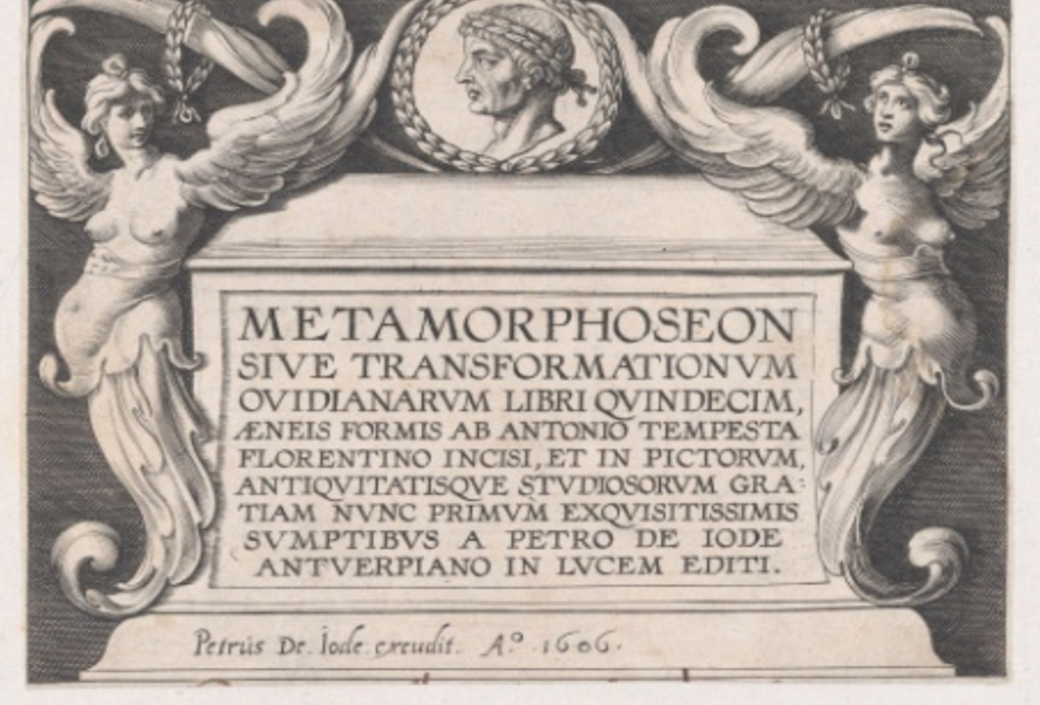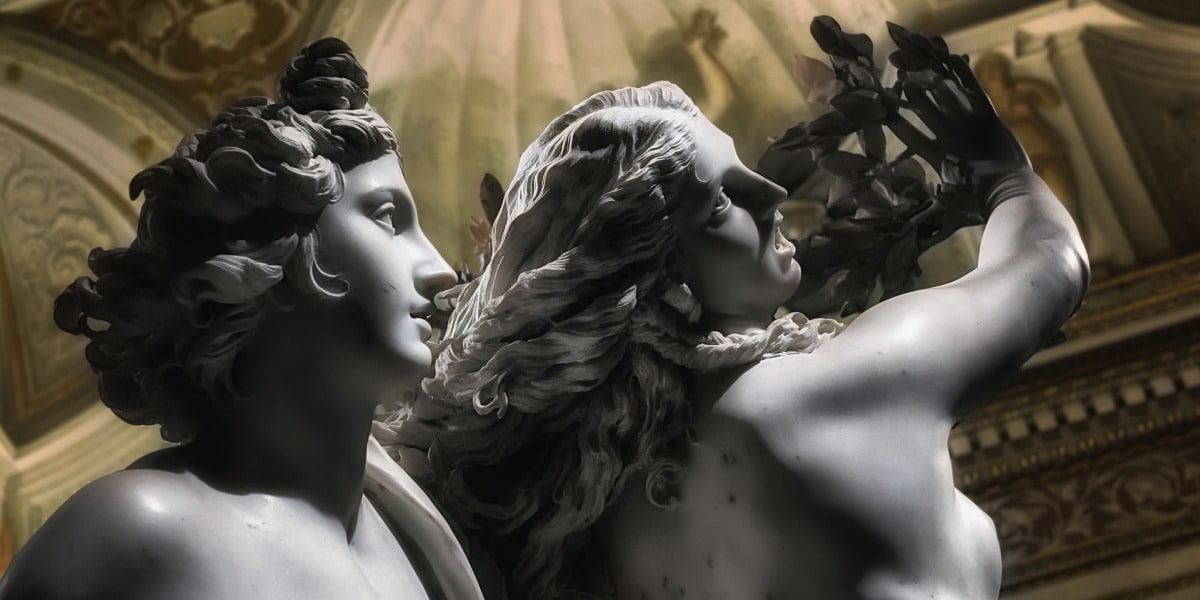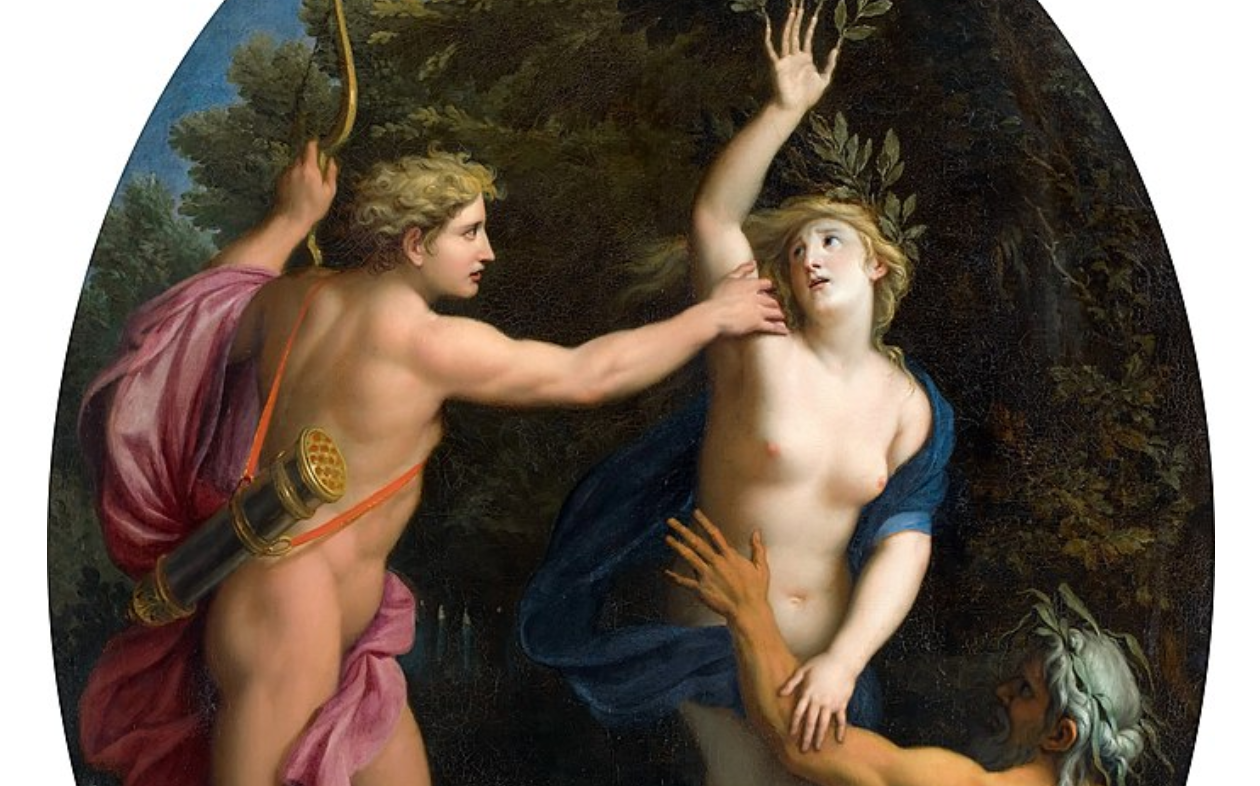By Efstathia Valavani,
How unfair and erroneous it is, to pursue the love of an individual that is neither willing, nor able to accept it? The Ancient Greek transformation myth about Daphne, her persecution by Apollo and her transformation into a laurel tree in order to escape him has survived in our days through the retellings of Greek and Roman writers, and has grown into an inspiration for artists and creators of subsequent years. The great poet Ovid, in his narrative poem Metamorphoses that contains over 250 myths, dedicates a fair amount of his writing to Greek mythology. He aspires to explain the creation of the world, and most importantly, the beauty of the constant changes that characterize life and nature. Besides the supernatural elements, readers can relate to many of Ovid’s mythical personas and their struggles and aspirations.
In the beginning of the first Book of his Metamorphoses, in the section entitled “The Creation of the World”, Ovid introduces his long poem as a narration of the transformations and the Metamorphoses our world has been subjected to. The great Latin poet, seeking the help of the gods, declares his intention to talk about the different forms, and the new bodies they have attained throughout the ages:
Of bodies changed to various forms I sing:
Ye gods, from whom these miracles did spring,
Inspire my numbers with celestial heat,
Till I my long laborious work complete;
And add perpetual tenour to my rhymes,
Deduced from nature’s birth to Cæsar’s times. (Ovid 43)

In the section “The Transformation of Daphne into a Laurel”, Ovid not only explains the existence of the laurel tree, and its connection to the god Apollo, who uses it as his symbol, but also seems to depict various changes regarding the nature, the psychology, and the actions of the two protagonists. On the one hand, Apollo, a powerful masculine figure, and a hero who wields profound intelligence, honesty, and calmness. He seems to be losing his whole Self due to a sudden infatuation, overcome by Cupid’s power. On the other hand, Daphne, daughter of the Thessalian river god Peneus, a naiad dedicated to the virgin goddess Diana. The only thing she wishes for is the right to self-determination, that is, her authority over her own body and the privilege of living her life in the way she wants.
The story begins with Cupid, son of Venus (the goddess of love) and Mars (the god of war), having a bitter dispute with the god of archery. During their acrimonious argument, Phoebus, who had just vanquished over Python, offended Cupid and his archery, claiming to be better than him. Cupid, filled with rage and with the need to prove that his bow is equal to (if not more powerful than) Apollo’s, decides to condemn Apollo to a love he cannot have. Making love and war coexist, he strikes the god through his bones with his gold arrow so that he falls in love with Daphne, the nymph dedicated to his sister and someone who could never love him back anyway. To make things worse, he takes a blunt arrow made of lead, one that “[p]rovokes disdain, and drives desire away” (Ovid 62) and hits Daphne with that. Ironically, the god of healing is unable to heal himself from a desire that can only bring destruction; a sickness under that carries the name of love but does not resemble it at all.
Daphne, who was never interested in love, men, or marriage, now loathes Phoebus and runs as far away from him as possible. The god, blinded by his insanity, knows no respect and feels nothing of value, except his own sickening need for satisfaction of his desires. He does not seem to care about the nymph, her cries, and her own feelings at all, and despite the obvious tragedy that he is about to cause, he persecutes her, trying to convince her of his worthiness. Apollo, who in other cases has been viewed as the pinnacle of respect and an example for every young man to follow, now resembles an evil monster. In this unfair persecution, Daphne, with all her speed and strength, tries to avoid him and free herself, while the powerful god is constantly close to her, ready to cause her harm in order to claim her. It is not his feelings or his opinion about her that are revolting to Daphne and she has nothing to do with those. It is his presence that she fears and his actions that disgust her. In one last attempt to retain her peace as well as her body intact from her aspiring predator, she asks her father Peneus to rescue her and he turns her into a laurel tree.

This sacrifice Daphne does is for nobody else but herself. She prefers to lose her life as she knows it over losing her self-reliance, remaining eternally free as she is in her very last moment before turning into a tree. Apollo, who understands his mistake after the tragedy has already occurred, does everything in his power to rescue the remaining life of Daphne as a laurel tree, this time, with her consent and without thinking about his desire:
Be thou the prize of honour and renown,
The deathless poet and the poem crown. […]
Secure from thunder, and unharm’d by Jove,
Unfading as the’ immortal powers above;
And as the locks of Phœbus are unshorn,
So shall perpetual green thy boughs adorn. ‘
The grateful tree was pleased with what he said;
And shook the shady honours of her head.
Apollo’s change of heart was too delayed, however, and it resulted to a woman being destroyed due to his inability to understand what is acceptable or unacceptable.
Reference
- Ovid. “Ovid’s Metamorphoses”. Press of C. Whittingham, 1822. V 1.




